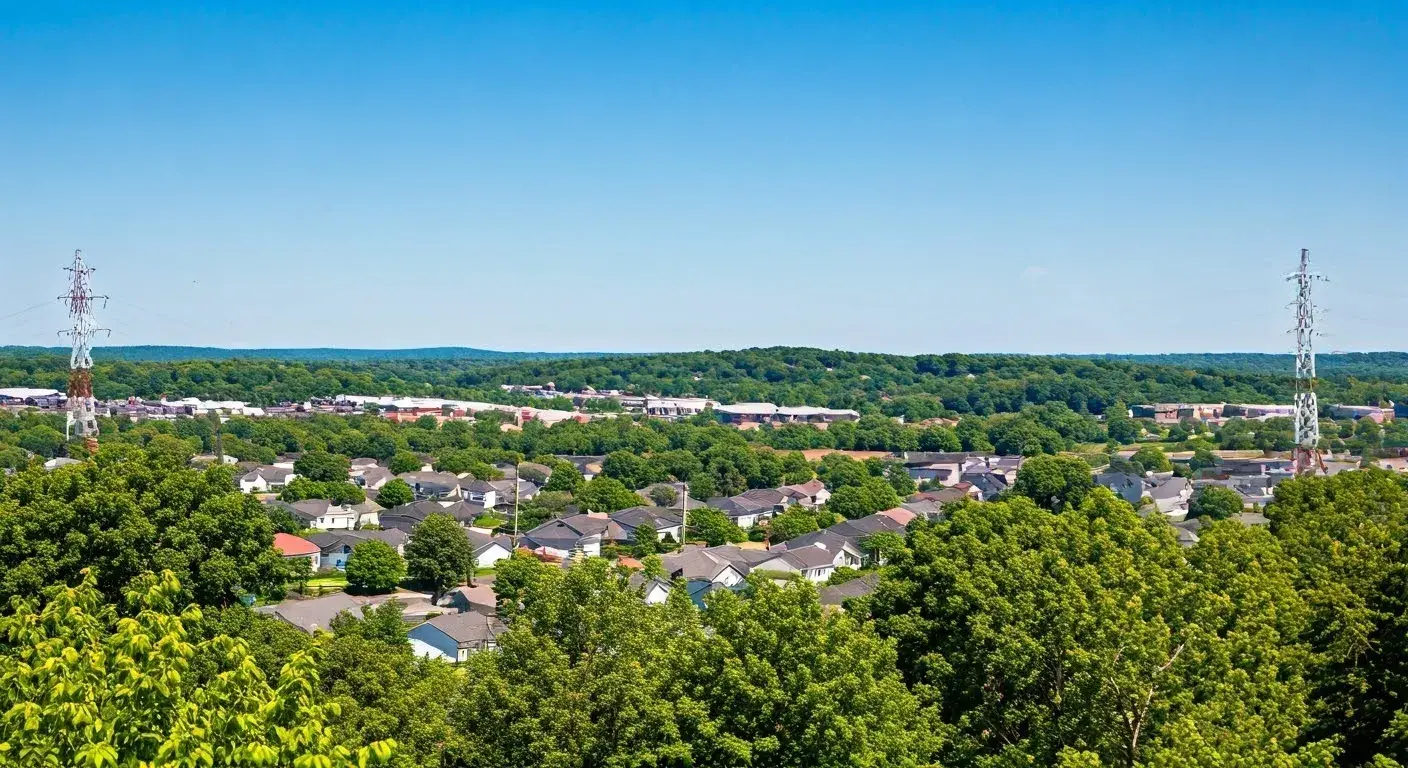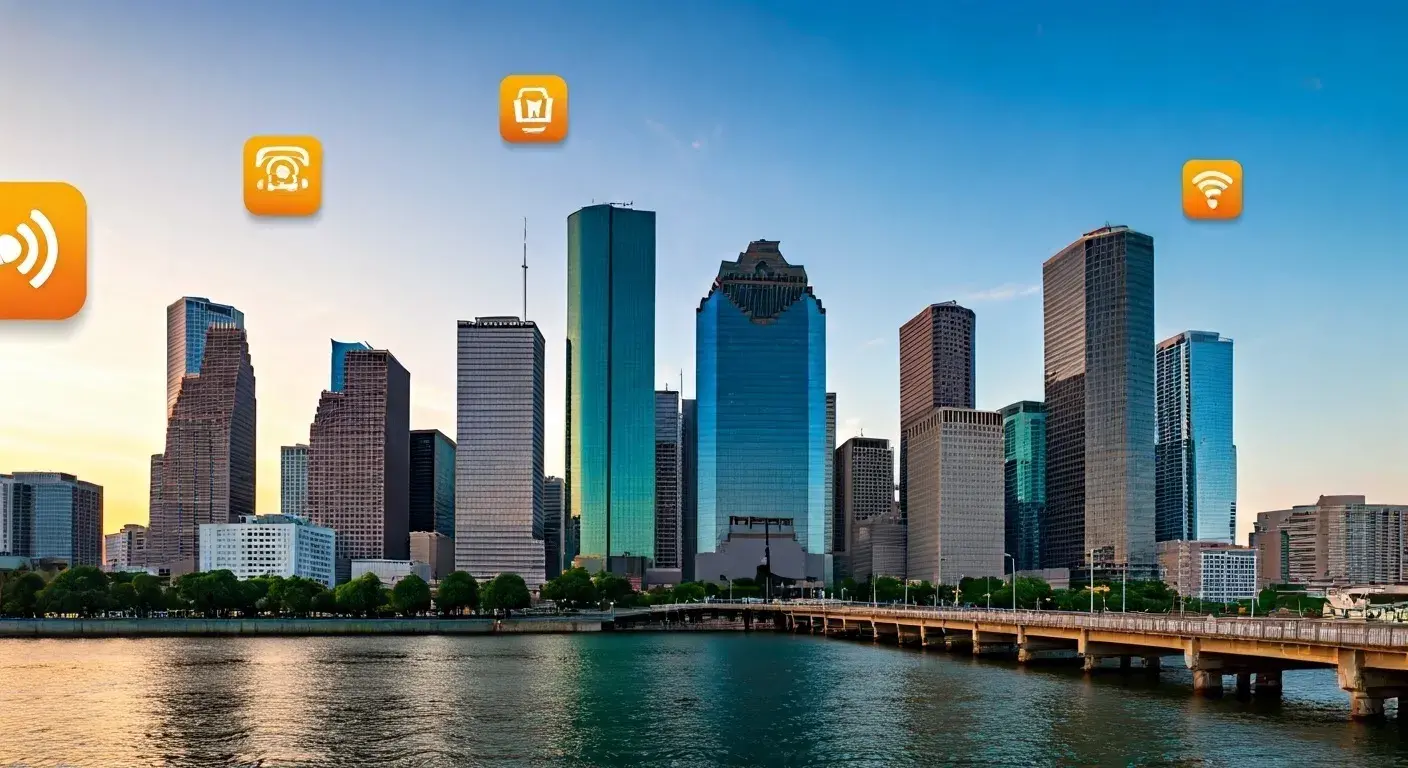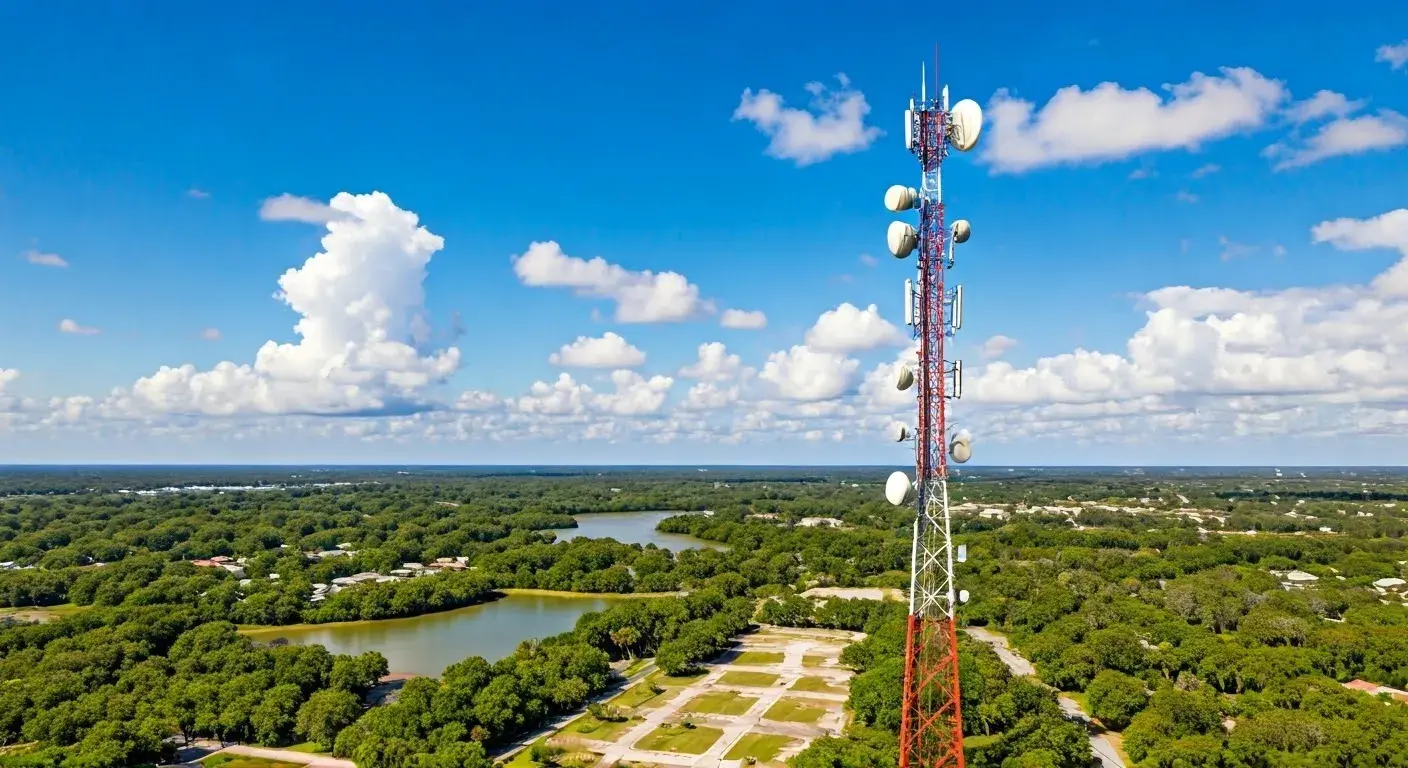
Broadband Internet means a fast connection to the World Wide Web that facilitates fast downloading and uploading of data. It is faster in terms of speed and has a wider bandwidth than dial-up internet access. Broadband connections use such technologies as cable, DSL, fiber optic, wireless, and satellite for their capability to offer fast and continuous connectivity.
Common types of broadband internet connections
DSL (Digital Subscriber Line)
DSL refers to the use of telephone lines to pass data for internet connection by converting them into digital signals. There are various classifications of DSL connections such as ADSL, VDSL, SDSL, and RADSL. Most homes and small businesses use ADSL to achieve higher download than uploading rates over limited distances. SDSL and VDSL are faster symmetrical communication technologies designed to operate over shorter distances.
Cable Internet
Cable internet also relies on the same coaxial cables that transmit cable television to the users. It is noted that the download speed is generally higher compared to the upload speed. The largest cable internet service providers comprise Xfinity, Spectrum, Cox, Optimum, and Mediacom. Download through and upload speed may be affected by the number of users within the neighborhood who share a similar bandwidth.
Fiber Optic Internet
Fiber optic internet transmits data through flexible glass fibers, employing light signals as opposed to electric signals for a very fast connection. It has download speed and upload speed with almost no delay. Verizon FiOS, AT&T Fiber, and Google Fiber are delivering fiber to the premises connections with up to one gigabit speed.
Fixed Wireless Broadband
Fixed wireless internet can be defined as home broadband which uses radio connections between a fixed antenna in the home as well as a transmitter. They are faster than satellite internet but comparatively slower than wired broadband services. Some major fixed wireless providers include Rise Broadband and Vivint.
Satellite Internet
Satellite internet is a type of internet connection that uses satellites orbiting the earth to transfer data through satellite dishes at home or at commercial places. Even though satellite internet service is offered almost everywhere, the latency issue is a major problem because data has to cover vast distances. Viasat, HughesNet, and Starlink are some of the most common satellite Internet service providers.
What speeds are included in broadband internet?
Right now, the Federal Communications Commission (FCC) has adopted the speeds of 25 Mbps download and 3 Mbps upload for broadband classification. This speed is suitable for tasks such as browsing the web, streaming videos and other media content, and downloading files. Online gaming and consumption of high-definition videos such as 4K resolution necessitate high bandwidths.
Here are typical download speeds for everyday online activities provided by different broadband technologies:
- Basic web browsing, email: Policies on the minimum speeds of broadband services
- Streaming HD video: Downloading 25-75 Mbps
- Video conferencing: 10 plus megabits per second
- Online gaming: 50+ mps
- Smart home devices: Measurable basic broadband rates
Advantages of Having Broadband Internet Connection
There are many valuable benefits that broadband internet offers over slower dial-up access
- Quicker Internet connection for web, app, video, and other site downloads
- Several wireless devices connected to the network can be accessed readily and without much interference.
- Initiating and maintaining streaming of high-definition video content
- Visibly free from glitches during video calls and other forms of online meetings
- Having an independent place to work; using the Virtual Private Network internet connection.
- Storing a large volume of data and synchronizing them with the cloud.
- Backing up smart home device's communications
In conclusion, broadband internet is an important factor in increasing productivity in households as well as businesses. This makes it possible to be online with several devices at the same time without reaching extremely slow speeds. It also supports the execution of activities like high-definition video streaming within a few buffering intervals through broadband connections. For these reasons, broadband internet has become as fundamental to the age we live in as electricity was to earlier generations. As more and more people look to consume content that requires higher bandwidths broadband technology remains an ever-advancing technology to offer consumers higher symmetric speeds with each passing year.






